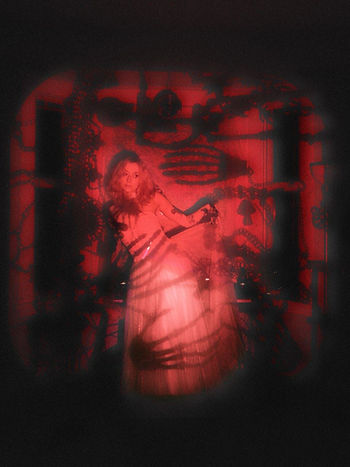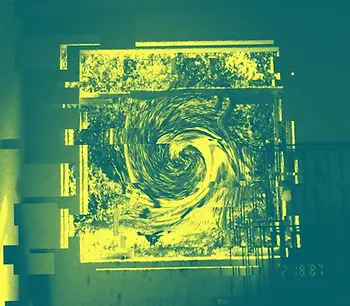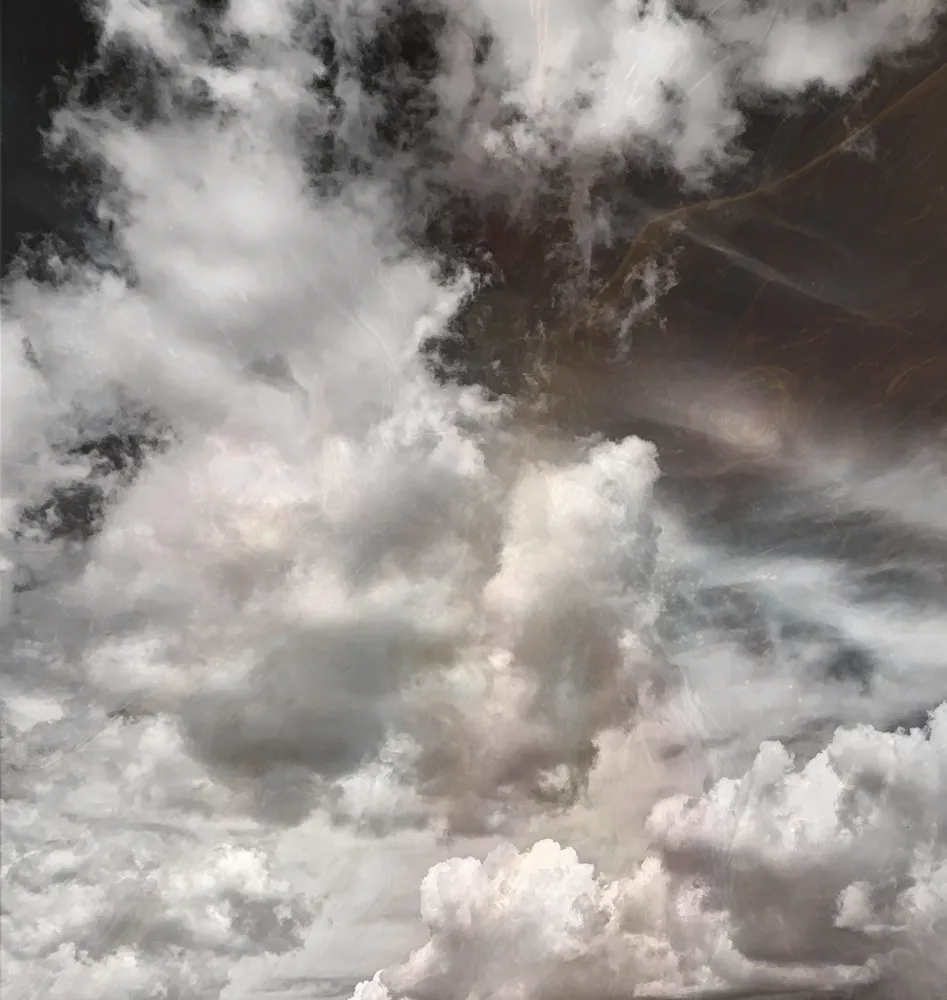
Like a mist rising over a forgotten forest lake, Tendrils emerges as a rare bloom—both haunted and alive, intimate and ungraspable. The second LP from Old Man of the Woods, the alias of Seattle-based multidisciplinary artist Miranda Elliott, is an experimental, ethereal electro-acoustic offering—a devotional sung from a distance, whispered through cracked walls and rusted hinges.
There is a peculiar alchemy at work here: Tendrils turns disintegration into texture, loneliness into communion. Recorded in a lakeside former sanatorium in Biesenthal, Germany, during Elliott’s artist residency, the album becomes a relic—a sonic relic—preserved in amber, unpolished, unaltered, intentionally imperfect. These are songs not meant to be refined, but to be felt as one would feel the air in an abandoned room, still echoing with its ghosts.
Each song is like a vine curling through the soul—taut, trembling, fragrant with memory, and strangely alive.
At its core, Tendrils is about the unseen threads that bind us: to each other, to places, to versions of ourselves we’ve left behind. These are songs sung from the other side of a veil—lush with layered voices, humming with electronic residue, and rooted in sonic soil both organic and alien.
Track-by-Track: Beneath the Veil
Amber
The album opens with Amber, a piece that floats rather than walks. Elliott’s voice hovers like a glowing ember above a fire—delicate, flickering, and just out of reach. An ostinato-like bassline churns slowly below, grounding the piece in quiet anticipation. There’s a Depeche Mode-esque echo in the mood, but the vocal remains untamed, gliding freely above the pulse.
Anonymity
Here, the veil thickens. The voice becomes soft, spectral, wrapped in layers of synthesized mist. The track leans into restraint—melody and rhythm loosen their grip, allowing space for introspection. It is a kind of sacred erasure, a retreat into invisibility that paradoxically reveals the self.
Jellyfish
Perhaps the album’s most hypnotic moment, Jellyfish unfolds like a lucid dream: a spoken incantation drifts over a sea of human voices, harmonized and disembodied. No instruments intrude. The voice is both bed and blanket, both sea and swimmer. This is music made of breath and bone, exquisitely fragile and immersive.
Abide
With Abide, the album shifts into darker waters. A pulsing bassline opens the track with urgency, building into a cybernetic landscape—half-ritual, half-future dystopia. At nine minutes long, this piece is a slow metamorphosis, introducing distorted textures and chanting vocal refrains. Harsh noise bleeds in gradually, like static from another dimension, until the structure collapses into something almost primal.
Mystery
As its name promises, Mystery is cloaked in harmonic ambiguity. Stacked vocals overlap and melt into one another under heavy reverb, evoking both cathedral and cave. A lonely piano traces ghostlike diminished chords and arpeggios—barely there, yet anchoring the piece in unresolved tension. It feels as if something is being summoned, but refuses to name itself.
Meditation
The closing track is not an exhale, but an arrival. Here, the rhythm is grounded in acoustic-sounding percussion—earthy, bodily—yet the vocals remain as airy as ever. It feels like a sonic ritual, where grounded beats coexist with elevated, flowing voice lines. One is pulled both downward and upward, as if meditating in mid-air.
Final Tendrils

Tendrils is not an album that demands; it invites. It doesn’t aim for clarity but for resonance. It lingers like smoke after a candle is blown out. Miranda Elliott, as Old Man of the Woods, has created a body of work that thrives in the liminal—between silence and sound, past and future, decay and bloom.
These are songs you don’t simply listen to—you wander through them, as if through fog, with hands outstretched. With its blend of floating vocals and grounded pulses, Tendrils blooms into something mythic: a hymn for the haunted and the hungry.
This is an album for those who find beauty in the cracked, the abandoned, the tenderly strange. For those attuned to atmospheres more than hooks, and for listeners who are not afraid to feel their way through the dark.
#OldManOfTheWoods #Tendrils #MirandaElliott #ElectroAcoustic #ExperimentalPop #AmbientPop #EtherealMusic #SeattleArtists #FemaleProducer #WhisperedDevotionals #SoundArt #SanatoriumSessions #VoiceAsInstrument #TotallyRealRecords #DreamlikeMusic







